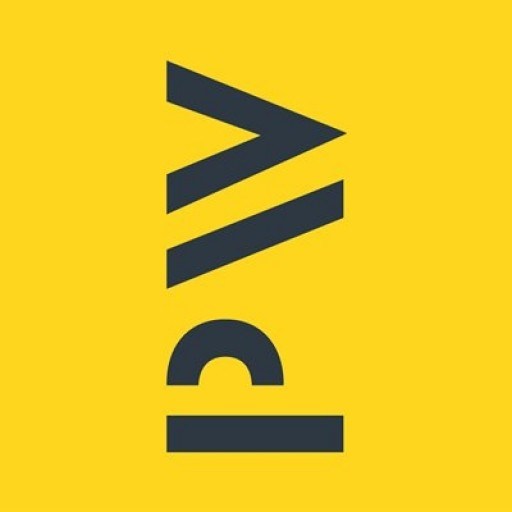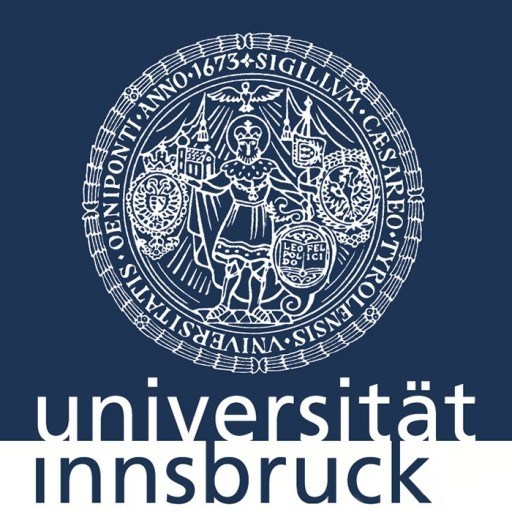Photos of university / #politechnika_warszawska
The Erasmus Mundus Master in Advanced Robotics is a comprehensive and innovative two-year master's program offered collaboratively by leading universities, including the Warsaw University of Technology. Designed for aspiring engineers and researchers, this program aims to equip students with advanced knowledge, skills, and hands-on experience in the rapidly evolving field of robotics. Through a multidisciplinary approach, students will explore core areas such as control systems, intelligent robotics, automation, computer vision, machine learning, and embedded systems, enabling them to develop autonomous robotic solutions across various industries.
The program emphasizes a strong theoretical foundation complemented by practical training. Students will participate in intensive coursework, laboratory work, and project-based learning, fostering critical thinking and problem-solving abilities. Additionally, the program offers exposure to cutting-edge research and innovation through collaborations with industrial partners and research centers. Students will have the opportunity to attend lectures and seminars delivered by renowned experts in robotics, facilitating a rich learning environment that bridges academia and industry.
A key feature of the Erasmus Mundus Master in Advanced Robotics is its mobility scheme, allowing students to study at multiple prestigious universities in different European countries. This international experience broadens their cultural perspectives and enhances their adaptability in global work environments. Throughout the program, students are also encouraged to develop their soft skills, such as teamwork, communication, and project management, which are essential for successful careers in robotics.
Graduates of this master's program are well-positioned to pursue careers in research and development, manufacturing, automation, and technology consulting. They are also prepared for doctoral studies or entrepreneurial ventures in the field of robotics. With a curriculum aligned with the latest industry standards and research trends, the Erasmus Mundus Master in Advanced Robotics offers a unique opportunity for students to become leaders in the future of intelligent automation and robotic systems.
The Erasmus Mundus Advanced Robotics (EMARO) program is a prestigious international master's degree designed to provide students with comprehensive knowledge and practical skills in the field of robotics and automation. This program is a collaborative effort between leading European universities, including Warsaw University of Technology, allowing students to benefit from a rich academic environment, cutting-edge research, and diverse cultural experiences. Throughout the duration of the program, students engage with advanced topics such as robotic systems design, control algorithms, automation, artificial intelligence, machine learning, embedded systems, and sensor technologies. EMARO emphasizes a multidisciplinary approach, integrating principles from mechanical engineering, electrical engineering, computer science, and software engineering to prepare graduates for complex challenges in robotics industries worldwide.
The program is structured to include courses, laboratory work, project-based assignments, and internships, all aimed at fostering both theoretical understanding and practical expertise. Students have the opportunity to participate in research projects involving innovative robotics applications, such as autonomous systems, humanoid robots, unmanned vehicles, and industrial automation solutions. One of the key features of EMARO is its mobility scheme, enabling students to study at multiple partner universities across Europe, thus gaining international exposure and a broader perspective on robotics technologies. The program concludes with a master's thesis that demonstrates students' ability to apply advanced robotics concepts to real-world problems.
Graduates of EMARO are well-equipped to pursue careers in academia, research and development, and industry sectors including manufacturing, aerospace, healthcare, and service robotics. The curriculum also encourages entrepreneurial thinking and collaboration with industry partners, preparing students to become future leaders in the robotics domain. With its high-quality education, diverse international environment, and extensive network of alumni and industry contacts, EMARO represents a unique opportunity for aspiring robotics experts to advance their careers and contribute to technological innovation.
The Erasmus Mundus Advanced Robotics (EMARO) programme requires prospective students to hold a relevant undergraduate degree such as a bachelor's in mechanical engineering, robotics, electrical engineering, computer science, or a related technical field. Applicants must demonstrate a strong academic record, including high grades in key subjects like control systems, automation, computer programming, and mechanics. Candidates are also expected to have proficiency in English, evidenced by standard tests such as TOEFL or IELTS, with minimum scores specified by the programme. Prior experience or coursework in areas like artificial intelligence, sensor technologies, or automation systems is highly advantageous. The selection process involves a thorough review of academic transcripts, letters of recommendation, and motivation letters explaining the candidate’s interest and career objectives in robotics. A relevant work experience or participation in research projects related to robotics or automation can strengthen an application. Additionally, candidates must be able to articulate their motivation for studying in an international environment and contributing to the global robotics community. The programme encourages applications from students with diverse educational backgrounds within the engineering and computer science domains, provided they demonstrate the necessary technical skills. Applicants may also be required to participate in interviews or assessment tests as part of the admission process. Apart from academic and language requirements, candidates should ensure their application packages include a detailed CV, academic transcripts, a copy of their degree certificate or diploma, and proof of any relevant publications or patents if available. The admission criteria prioritize candidates who display academic excellence, clear motivation, and the potential to contribute to collaborative projects within the consortium universities. Successful applicants will need to meet visa and health insurance requirements for studying in the partner countries, as well as demonstrate the capacity to undertake an intensive, research-oriented master's programme in robotics. The programme aims to foster multidisciplinary expertise, innovative thinking, and practical skills, so applicants should show a keen interest in advancing robotics technology through research, design, and implementation projects. Overall, the programme’s requirements are designed to select highly motivated and qualified candidates capable of excelling in an international and technologically advanced educational environment dedicated to the future of robotics.
The Erasmus Mundus Advanced Robotics (EMARO) program offers a comprehensive financing structure designed to support its students throughout their studies. Funding options include full scholarships provided by the European Union, which cover tuition fees, travel expenses, and a monthly stipend to assist students with living costs. These scholarships are highly competitive and are aimed at attracting talented students from around the world, emphasizing the program's commitment to excellence and international collaboration.
In addition to EU-funded scholarships, various national and university-level grants may be available to assist students financially. These can include additional stipends, research funding, and support for conference attendance or exchanges. Students are encouraged to explore external funding sources, such as governmental research grants and private foundations, that may complement their primary sources of support.
The program also offers an array of work opportunities, such as internships and part-time jobs within university facilities or partner organizations, which can help students offset their living expenses while gaining practical experience in the field of robotics. These opportunities are often integrated into the curriculum, providing valuable industry exposure and networking prospects.
Furthermore, students enrolled in the EMARO program benefit from the possibility of mobility grants, which facilitate study exchanges between partner universities in different countries. These grants help cover additional costs associated with international mobility, fostering a truly global academic experience.
Financial aid distribution is managed through a structured application process, where candidates must demonstrate academic excellence and financial need to be considered for the most comprehensive funding packages. The program is aimed at ensuring that financial constraints do not hinder capable students from accessing high-level education in advanced robotics.
Overall, the financing studies are designed to provide substantial support to enrolled students, ensuring that they can focus on their educational and research activities without undue financial stress. The program’s combination of EU scholarships, additional grants, work opportunities, and mobility support exemplifies its dedication to fostering a diverse, inclusive, and high-quality educational environment in the field of robotics.
The Erasmus Mundus Advanced Robotics (EMARO) program offered by Warsaw University of Technology is a highly specialized postgraduate learning opportunity focused on the field of advanced robotics. This Master's degree program is designed to equip students with comprehensive knowledge and practical skills necessary for the development, application, and management of robotic systems across various industries. The curriculum emphasizes fundamental principles of robotics, including kinematics, dynamics, control systems, artificial intelligence, and machine learning, integrated with hands-on projects and internships to ensure practical competence.
EMARO is characterized by its international consortium of partner universities, enabling students to study across multiple European institutions. This mobility component immerses students in diverse educational environments, enhances cross-cultural communication skills, and fosters collaboration with international peers. The program typically spans two years, during which students undertake coursework divided into core modules, specialization electives, and a final thesis project. Emphasis is placed on interdisciplinary learning, combining mechanical engineering, electrical engineering, computer science, and automation.
Students enrolled in EMARO have access to state-of-the-art laboratories and research facilities at Warsaw University of Technology, renowned for its expertise in automation and robotics. The program also fosters partnerships with leading industry players, providing opportunities for internships, collaborative research, and employment after graduation. Graduates are well-prepared for careers as robotics engineers, automation specialists, research scientists, and technical consultants in various sectors such as manufacturing, healthcare, aerospace, and service robotics.
Admission requirements typically include a relevant undergraduate degree, proficiency in English, and motivation to engage with cutting-edge technological challenges. The program is officially recognized by the European Union, and graduates often receive a double or joint degree from the partner institutions, enhancing their international employability prospects. The program’s focus on innovation and advanced technological skills addresses the growing demand for experts capable of advancing robotics toward more autonomous, intelligent, and adaptable systems.
Overall, the EMARO program at Warsaw University of Technology combines rigorous academic coursework, research opportunities, and international exposure to prepare students for leadership roles in the evolving field of robotics. Its multidisciplinary approach and close ties with industry ensure that graduates emerge as competent professionals ready to contribute to scientific advancement and technological innovation globally.





